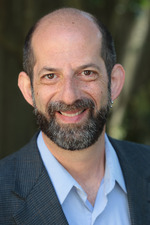The Truant God
 Friday, May 31, 2013 at 05:57AM
Friday, May 31, 2013 at 05:57AM Two weeks ago I attended the eQuality Scholarship Collaborative Awards dinner in San Francisco as 16 Queer and Allied students (from high school seniors to grad students) received awards and recognition for their extraordinary accomplishments. Some of these students were introduced at the banquet by their parents, some by friends, mentors, teachers. Each of them in their speech was candid about the challenges they had faced and the support they had received. Some thanked their families, some had been disowned by their families. Some talked about the challenge of starting or reinvigorating the GSAs (Gay-Straight Alliances) at their high schools. Some were grateful to organizations like LYRIC (Lavender Youth Resource and Information Center in the Castro, SF) Some talked about coming out in high or middle school as Trans, as Gay, as child of Queer parents. Some mothers spoke with pride about their feminist sons, their trans daughters.
The evening made us all cry – these were some of the most remarkable young people of whom the Queer community could boast. The strength, determination, courage, pride, and talent of these students was an inspiration. We all had such reason to be proud of all of them.
One thing I noticed in all the speeches made: Nobody thanked God, no one thanked a single religious authority or professional. Seemingly no clergy or congregation had helped any of these stars get to where they were.
I was so proud of them and so ashamed of us. Where have our institutions been, where have our clergy been? When middle school students were disowned by their parents where had the church or synagogue communities been? As these students had mustered their courage and energies and achieved, where had God been in their lives?
A generation of poorly led religious communities, and a lack of Godspeak among the Queer communities and institutions that supported these kids has meant that we are raising our next generation without a positive experience of God or spiritual community. Not everyone in the world wants or needs God in their life or consciousness, but when none of 16 brilliant and compassionate recipients mentioned God or prayer, we have done something wrong. The aversion from Godspeak among Queer adults has drifted down to the next generation. The comfort, the poetry, the more profound perspective that can come from a consciousness of Divinity in any form was conspicuously absent from these students' lives. A connection to God could make their lives even more dynamic and powerful.
Here's my challenge and my question to my adult readers: How much do you speak about God in your daily life? How much do you impart to your ownchildren or the children you encounter? What slows you down?
I think we adults have to move through our own discomfort, our own histories of abuse, and our own shame at being religious in temperament and rediscover the beauty of God that may have been concealed from us by a bad church or abusive clergy person. God is still there, God is still sterling, and God is a gift we should bequeath to our next generation.
